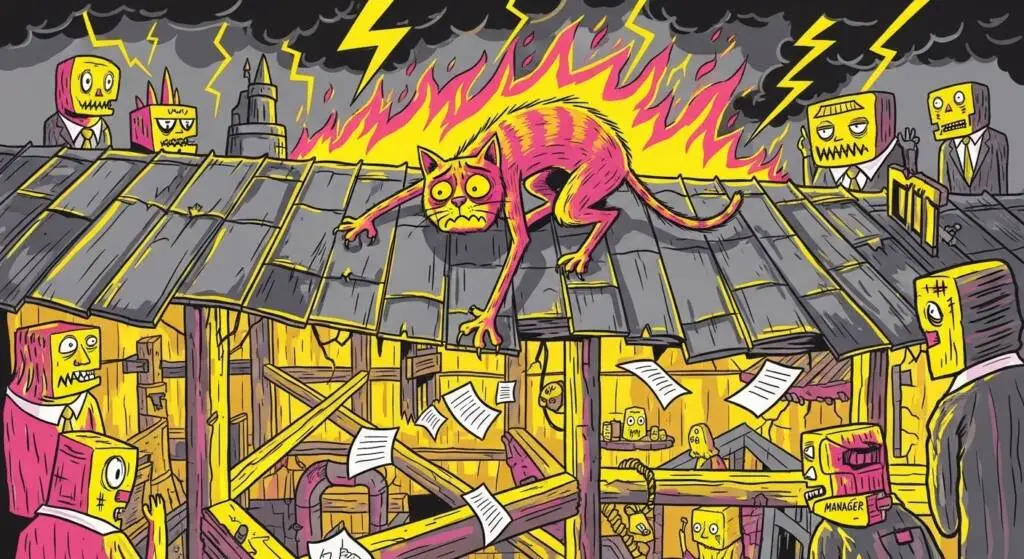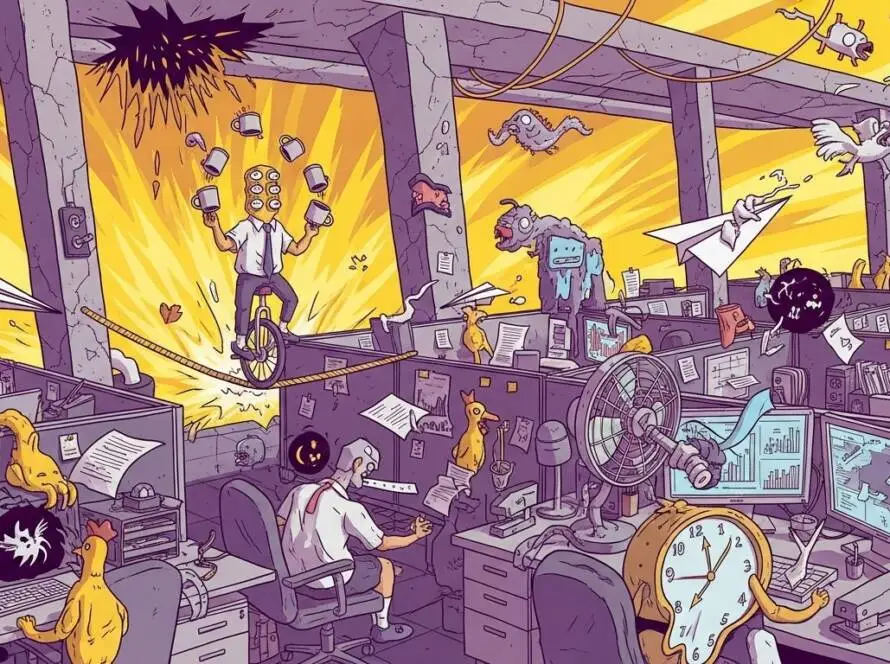Surviving a Project with a Terrible Manager
Ah, the joys of project management! It’s a world where deadlines loom like storm clouds, and team dynamics can shift faster than a cat on a hot tin roof. But what happens when the captain of your ship—your project manager—seems more like a pirate than a leader? You know the type: the one who wouldn’t listen to advice if it were a life raft in a sea of chaos. Let’s dive into the hilariously frustrating world of dealing with a terrible project manager.
Identifying the Signs of a Poor Project Manager
First things first, how do you know if you’re dealing with a project manager who’s about as useful as a chocolate teapot? Here are some classic signs:
-
Communication? What’s That?: If your project manager communicates like a mime at a silent retreat, you might be in trouble. Emails go unanswered, meetings are held without agendas, and feedback is as rare as a unicorn sighting.
-
Feedback? Never Heard of It!: Suggesting improvements? Good luck! Your advice might as well be written in invisible ink. They’ll nod along, but you can bet they’re mentally planning their next vacation instead of listening.
-
Decision-Making Skills of a Goldfish: If decisions are made on a whim, or worse, based on the latest office gossip, you might want to start looking for a life jacket.
The Impact on Team Morale and Productivity
Working under a terrible project manager can feel like trying to swim upstream in a river of molasses. Team morale plummets faster than a lead balloon, and productivity? Well, let’s say it’s taking a long, leisurely vacation.
You’ll find yourself in meetings that feel more like therapy sessions, where everyone shares their frustrations instead of actual project updates. “I feel like my ideas are being swallowed by a black hole,” one team member might say, while another chimes in, “I’m just here for the free coffee.”
Strategies for Coping and Communicating
So, how do you survive this tempestuous sea of mismanagement? Here are some strategies that might keep you afloat:
-
Frame Your Feedback Like a Compliment Sandwich: Start with something nice, slip in your feedback, and finish with another compliment. “Your hair looks great today! By the way, that project timeline is a bit optimistic. But seriously, love the new shoes!”
-
Use Visual Aids: Sometimes, a picture is worth a thousand words. Create colorful charts or infographics that illustrate your points. If they can’t read the room, maybe they can read a pie chart.
-
Find Allies: Team up with your colleagues. There’s strength in numbers! If you all approach the project manager together, it’s harder for them to ignore you. Plus, you can bond over shared frustrations—nothing like a bit of camaraderie to lighten the mood.
When to Escalate the Issue
If things get really dire, and your project manager is steering the ship straight into an iceberg, it might be time to escalate the issue. But do it wisely! You can approach upper management with a calm demeanor, armed with facts and examples. “I’m not saying we’re sinking, but I did just see a lifeboat float by.”
Personal Growth and Learning
Believe it or not, dealing with a terrible project manager can actually be a blessing in disguise. You’ll learn resilience, patience, and perhaps even how to navigate office politics like a pro. Plus, you’ll have some great stories to tell at parties. “Oh, you think your job is tough? Let me tell you about the time my project manager thought ‘feedback’ was a type of sandwich!”
Conclusion
Ultimately, surviving a project with a terrible manager is all about maintaining a positive perspective. Embrace the chaos, find humor in the absurdity, and remember that you’re not alone in this wild ride. Share your experiences, laugh at the madness, and who knows? You might just come out stronger on the other side—ready to tackle the next project, no matter who’s at the helm.
So, raise your coffee mugs, fellow survivors! Here’s to navigating the stormy seas of project management, one laugh at a time!
Disclaimer:
The information provided in this blog is for informational purposes only and should not be considered professional advice. While we strive to provide accurate and up-to-date information, we make no guarantees about the completeness or reliability of the content. Any actions you take based on the information in this blog are at your own risk. Additionally, this blog may contain affiliate links, and we may earn a commission from purchases made through those links.



